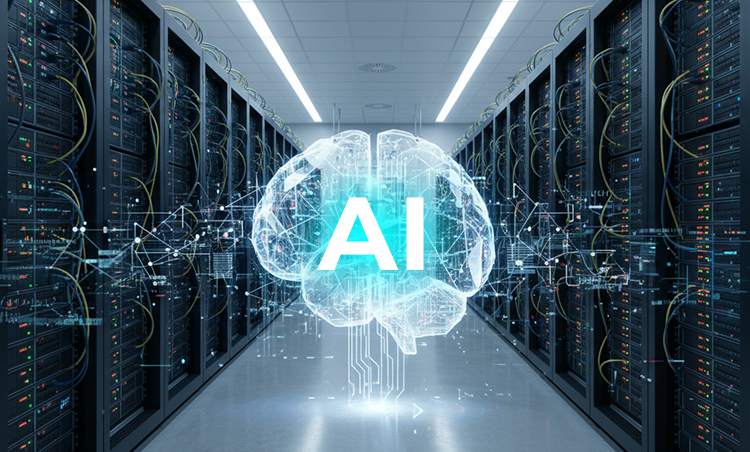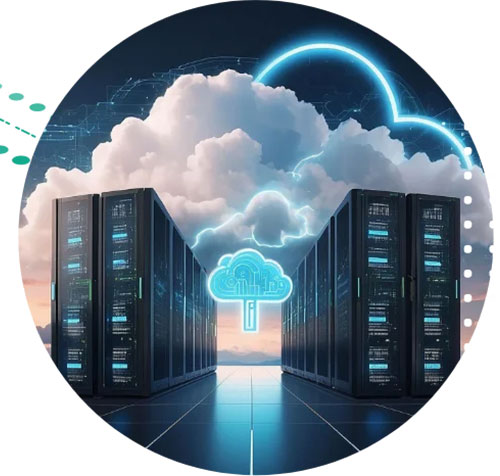Table of contents
Every organization requires a Data Center, irrespective of their size or industry. A Data Center is traditionally a physical facility which companies use to store their information as well as other applications which are integral to their functioning. And while a Data Center is thought to be one thing, in reality, it is often composed of technical equipment depending on what requires to be stored – it can range from routers and security devices to storage systems and application delivery controllers. To keep all the hardware and software updated and running, a Data Center also requires a significant amount of infrastructure. These facilities can include ventilation and cooling systems, uninterruptible power supplies, backup generators, and more.
A cloud Data Center is significantly different from a traditional Data Center; there is nothing similar between these two computing systems other than the fact that they both store data. A cloud Data Center is not physically located in a particular organization’s office – it’s all online! When your data is stored on cloud servers, it automatically gets fragmented and duplicated across various locations for secure storage. In case there are any failures, your cloud services provider will make sure that there is a backup of your backup as well!
So how do these different modes of storage stack up against each other? Let’s compare them across four different metrics: Cost, Accessibility, Security and Scalability.
Cost
With a traditional Data Center, you will have to make various purchases, including the server hardware and the networking hardware. Not only is this a disadvantage in itself, you will also have to replace this hardware as it ages and gets outdated. Moreover, in addition to the cost of purchasing equipment, you will also need to hire staff to oversee its operations.
When you host your data on cloud servers, you are essentially using someone else’s hardware and infrastructure, so it saves up a lot of financial resources which might have been used up while setting up a traditional Data Center. In addition, it takes care of various miscellaneous factors relating to maintenance, thus helping you optimize your resources better.
Accessibility
A traditional Data Center allows you flexibility in terms of the equipment you choose, so you know exactly what software and hardware you are using. This facilitates later customizations since there is nobody else in the equation and you can make changes as you require.
With cloud hosting, accessibility may become an issue. If at any point you don’t have an Internet connection, then your remote data will become inaccessible, which might be a problem for some. However, realistically speaking, such instances of no Internet connectivity may be very few and far between, so this aspect shouldn’t be too much of a problem. Moreover, you might have to contact your cloud services provider if there’s a problem at the backend – but this too shouldn’t take very long to get resolved.
Security
Traditional Data Centers have to be protected the traditional way: you will have to hire security staff to ensure that your data is safe. An advantage here is that you will have total control over your data and equipment, which makes it safer to an extent. Only trusted people will be able to access your system.
Cloud hosting can, at least in theory, be more risky – because anyone with an internet connection can hack into your data. In reality, however, most cloud service providers leave no stone unturned to ensure the safety of your data. They employ experienced staff members to ascertain that all the required security measures are in place so that your data is always in safe hands.
Scalability
Building your own infrastructure from scratch takes a lot of input in both financial as well as human terms. Among other things, you will have to oversee your own maintenance as well as administration, and for this reason it takes a long time to get off the ground. Setting up a traditional Data Center is a costly affair. Further, If you wish to scale up your Data Center, you might need to shell out extra money, albeit unwillingly.
With cloud hosting, however, there are no upfront costs in terms of purchasing equipment, and this leads to savings which can later be used to scale up. Cloud service providers have many flexible plans to suit your requirements, and you can buy more storage as and when you are ready for it. You can also reduce the amount of storage you have, if that’s your requirement.
Can’t decide which one to go for?
There is no universal right choice. Your choice should depend on what your business is prepared to take on, what your exact budget is, and whether or not you have an IT staff available to handle a physical Data Center.
Consider a dedicated private cloud infrastructure services for your mission-critical workloads
To know more about GoInfinit Private
– Sify’s private cloud storage service that will be ready for application deployment in as little as 10 weeks…































































